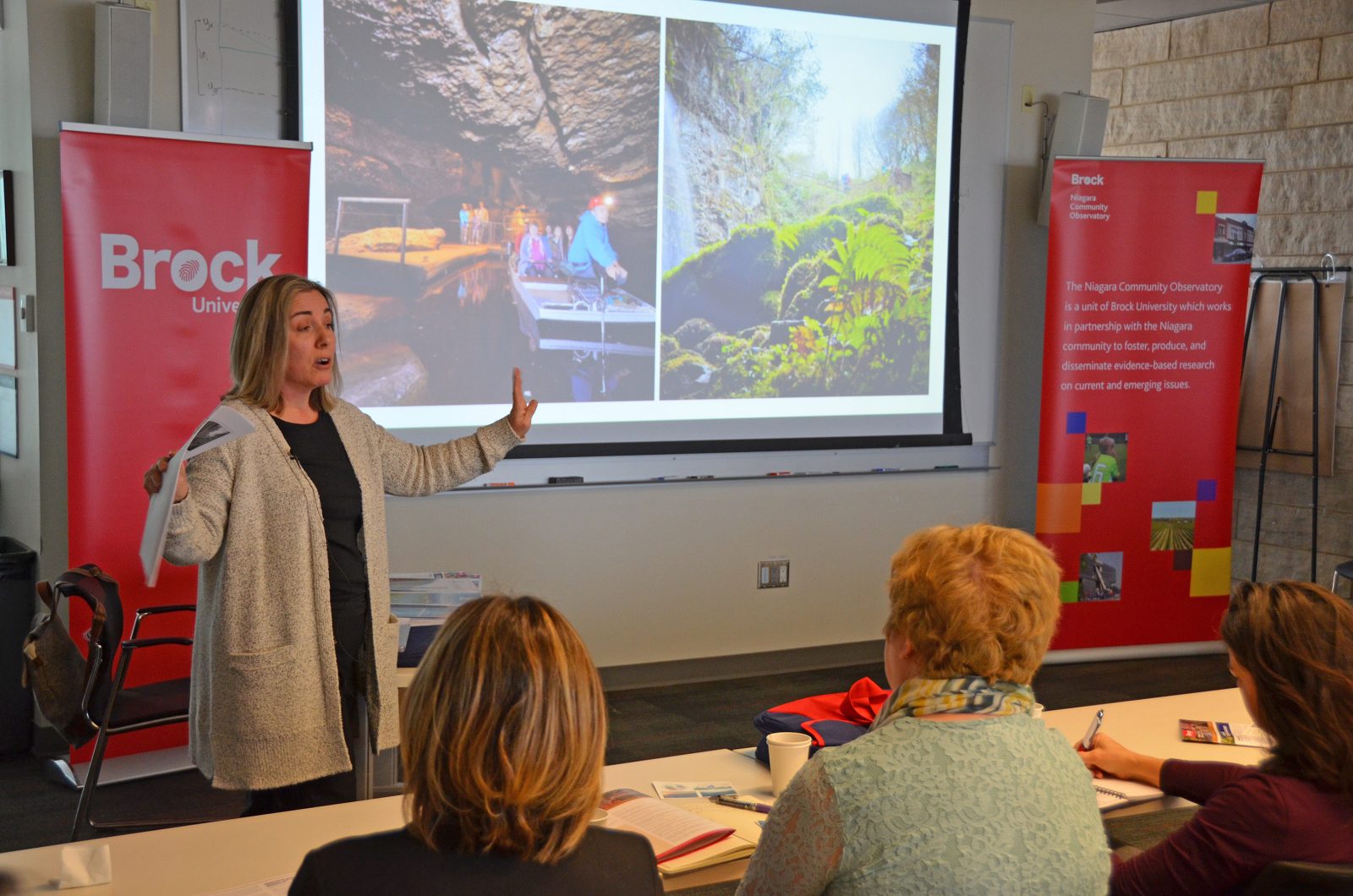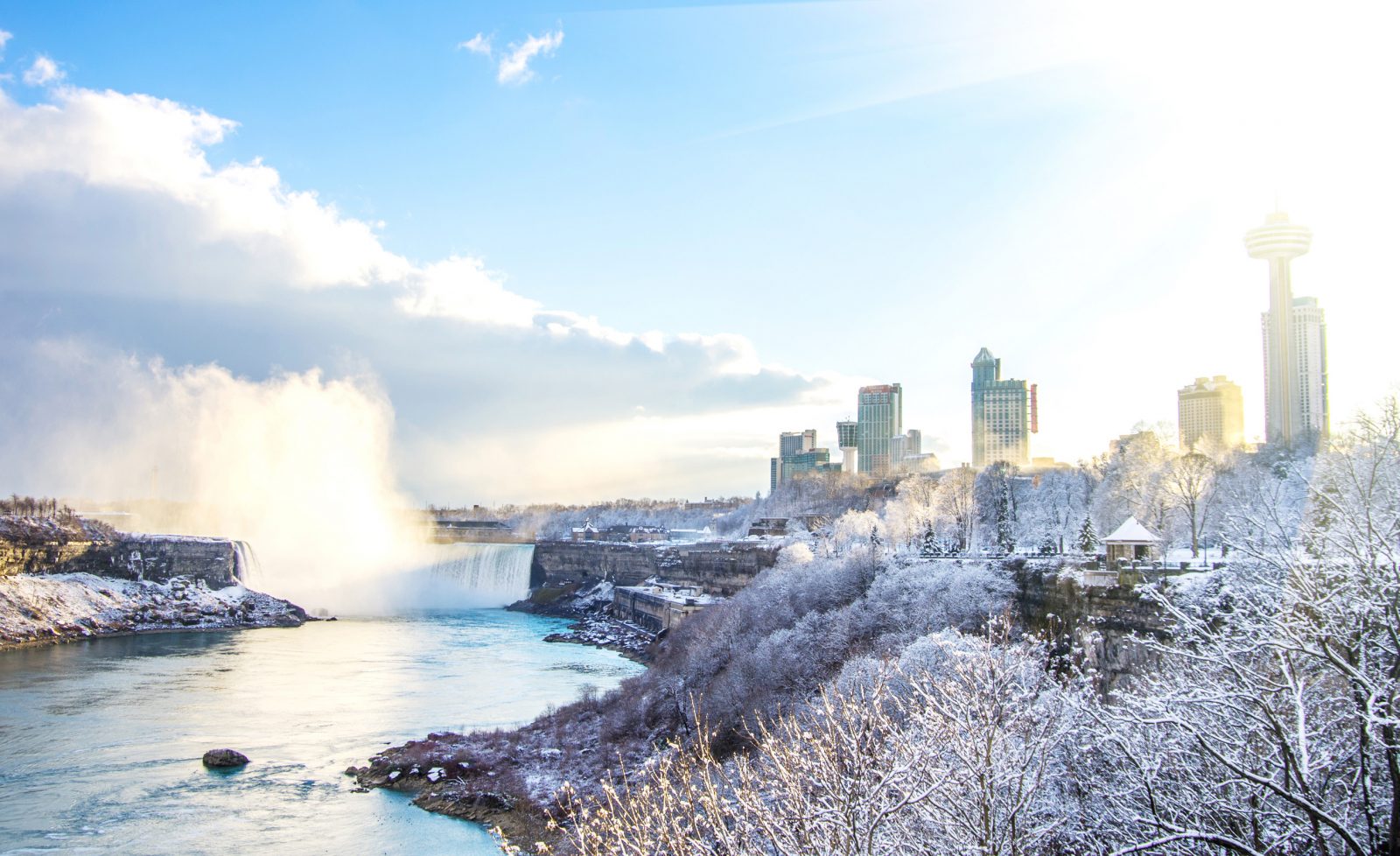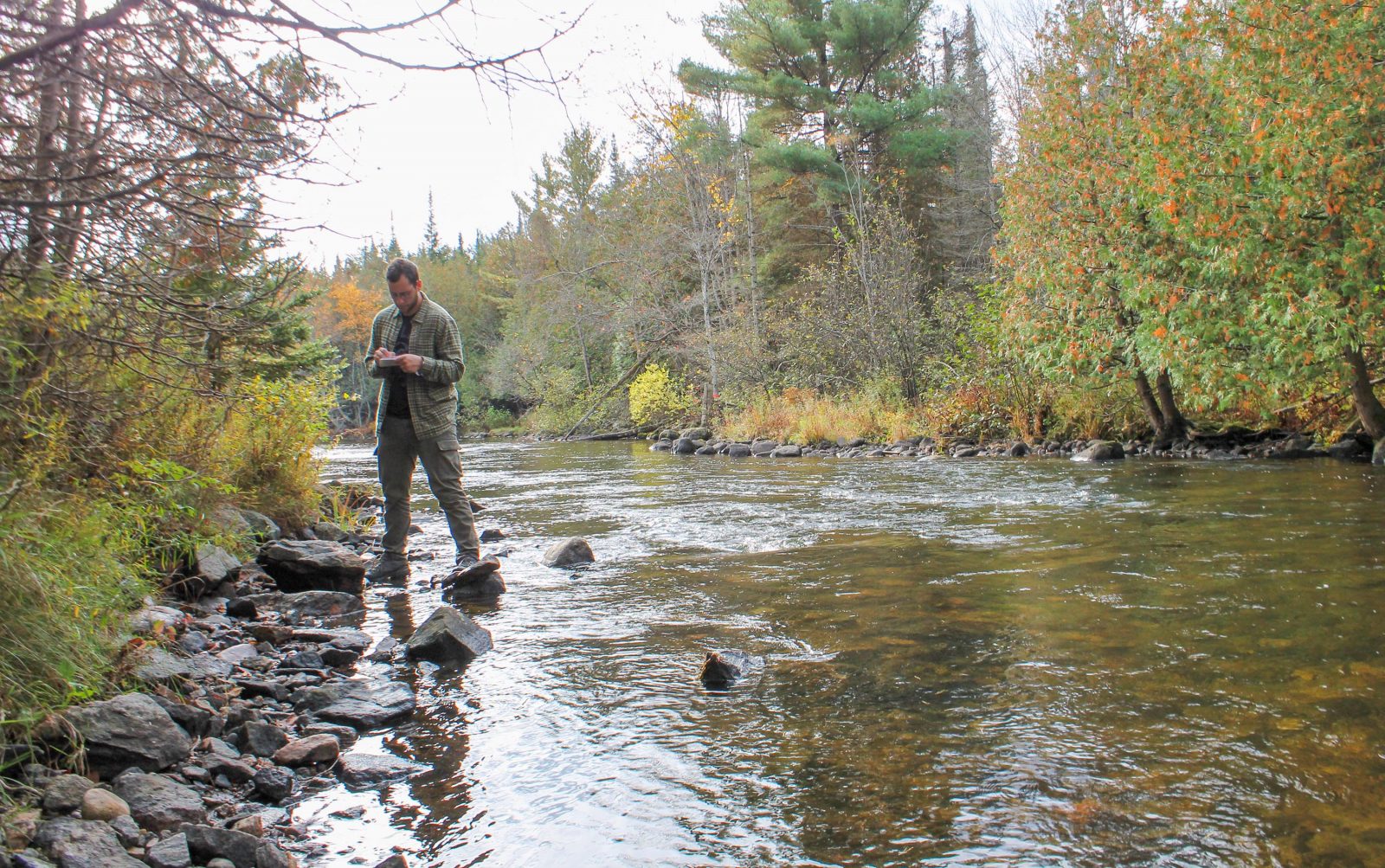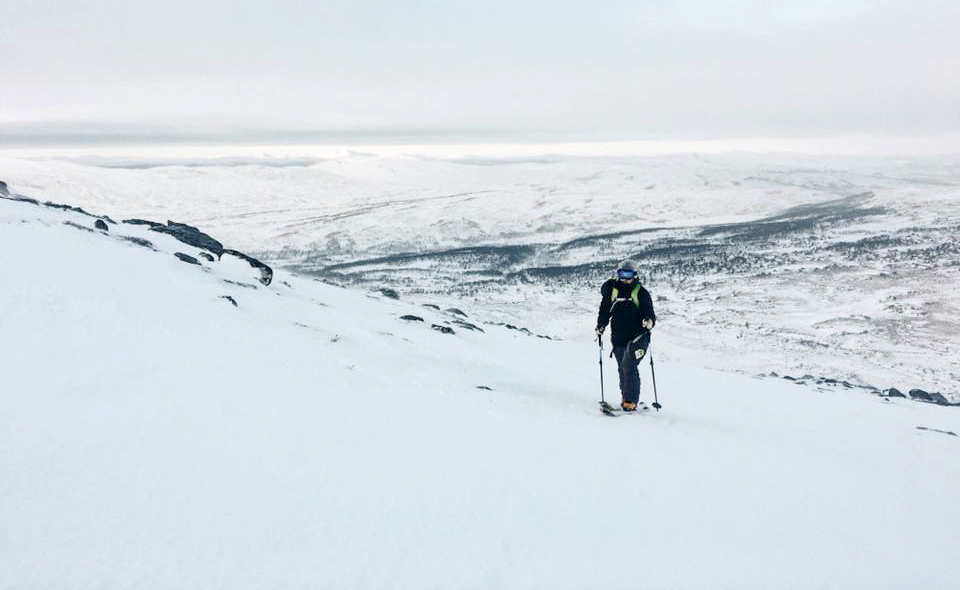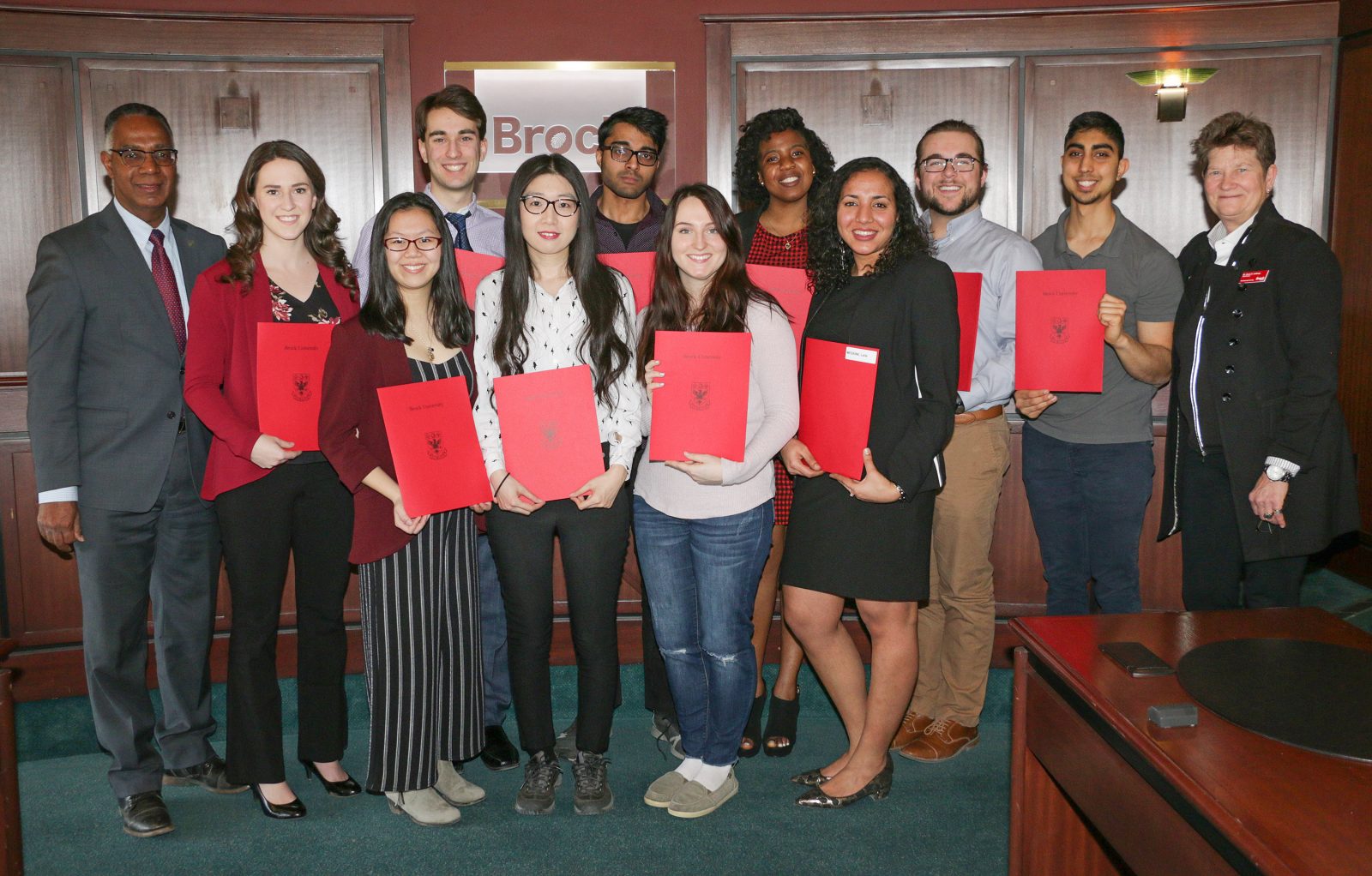
Brock President Gervan Fearon (left) and Anna Lathrop, Vice-Provost, Teaching, Learning and Student Success (right), present the President’s Surgite Awards to Olivia Poulin, Meghan Hickey, Nicolas Sardella, Wei Wang, Fayyaz Rizvi, Taylor Lidster, Daislyn Vidal, Leila Meskine, Jonah Graham and Dhruv Jivan.
Some of the brightest young minds at Brock University were recognized Tuesday for their displays of leadership and contributions to both the Brock and wider Niagara community.
Ten Brock students were selected from across the University to receive the President’s Surgite Awards, which honour the hard work they’ve completed throughout their educational journey.
The cross-section of students have amassed impressive resumés packed with academic accomplishments, volunteer experience and community contributions — making them fitting recipients for one of the University’s most prestigious honours.
The awards were presented by Brock President Gervan Fearon and Anna Lathrop, Vice-Provost, Teaching, Learning and Student Success, during a luncheon to celebrate the recipients on Tuesday, April 2.
After spending time learning from each award winner about their areas of focus and highlights of their Brock experience, Fearon encouraged them to reflect on their scope of leadership.
“What happens is we often look at ourselves as individuals and don’t realize we’re impacting and influencing so many of the people around us,” he said. “All of those influences represent your scope of leadership, which is often broader than your job and touches on your volunteer work and the example you’ve become within the community.
“You’re all leaders and examples to your peers, who then aspire to be able to achieve the same level of excellence. When you multiply that out to the wider scope, you become an inspiration to humanity because you’re defining possibilities.”
Fourth-year Medical Sciences student Dhruv Jivan was humbled by the honour and said he is grateful to have had such a rich university experience.
“Brock is such a loving and connected community. That environment allows you to thrive,” he said. “I wouldn’t trade this experience for the world.”
Through the University, Jivan spends time volunteering at the Brock Centre for Health and Well-Being, which has helped to shape his future path.
“I’ve grown so much during my time with the centre,” he said. “My love for the geriatric community and my passion for working with them has grown exponentially since I’ve been there.”
Lathrop told the students she’s confident the “future’s in good hands” with them at the helm. “Thank you for being at Brock and for making big differences in the world as you move forward in life,” she said.
The 2018-19 President’s Surgite Award winners include:
- Olivia Poulin (Business Administration — Marketing)
- Jonah Graham (Tourism and Environment, Minor in Geography)
- Dhruv Jivan (Medical Sciences)
- Meghan Hickey (Medical Sciences)
- Fayyaz Rizvi (Biological Sciences)
- Nicolas Sardella (Biotechnology, Co-op Option)
- Daislyn Vidal (Biological Sciences)
- Wei Wang (Business Administration)
- Leila Meskine (Mathematics and Statistics)
- Taylor Lidster (Biological Sciences)

